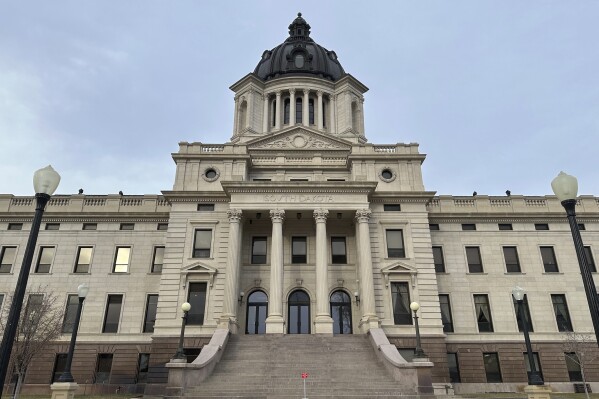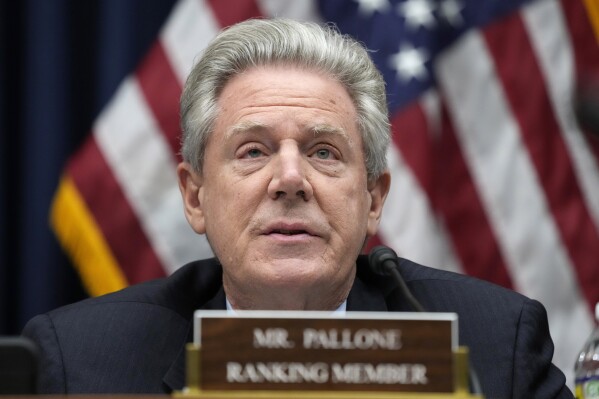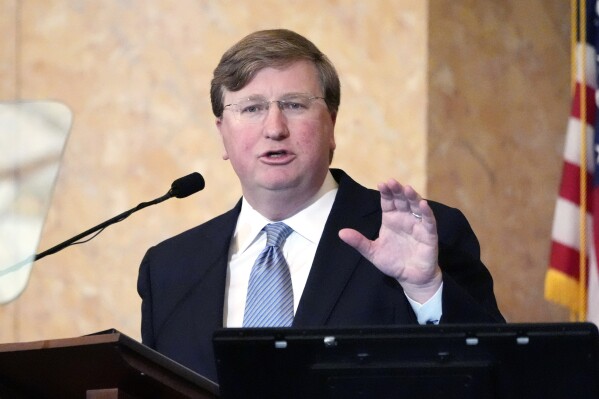Mississippi’s Republican-led House will consider Medicaid expansion for the first time
JACKSON, Miss. (AP) — Mississippi is one step closer to what would be a landmark shift in health care policy, with the Republican-led House preparing to debate expansion of Medicaid benefits to hundreds of thousands more residents in one of the poorest states in the U.S.
The House Medicaid Committee on Tuesday advanced the bill, which would increase eligibility for Medicaid, a health insurance program that covers low-income people. Those making up to 138% of the federal poverty level, or $20,120 annually for a single person, would be eligible under the proposal. The measure could extend benefits to about 250,000 people.
“Our health metrics will improve, we’ll see greater access to care, and hopefully start to see a healthier Mississippi where our folks are getting treatment earlier rather than later,” said Republican Missy McGee, the committee chairwoman.
Mississippi has the highest rate of preventable deaths in the U.S. Its top health official has said it ranks at the bottom of virtually every health care indicator and at the top of every disparity. Hospitals are struggling to remain open. The state also has one of the nation’s lowest labor force participation rates. Expansion proponents have said the policy could help ameliorate these conditions.



The move follows years of Republican opposition to the expansion allowed under the Affordable Care Act, a 2010 federal health overhaul signed by then-President Barack Obama. Opponents of Medicaid expansion say the program would foster government dependency, increase wait times for health services and push people off private insurance.
Until this year, Mississippi’s legislative Republicans never held a hearing to consider Medicaid expansion. Debate stalled due to opposition from party leaders, including Gov. Tate Reeves, who on Tuesday repeated his stance that the government “should not run health care.” But new Republican House Speaker Jason White, who sponsored the Medicaid expansion bill with McGee, says he wants legislators to consider the policy as a way to bring hundreds of millions of federal money each year to the state.
McGee touted a financial incentive for expanding Medicaid provided by Congress in the American Rescue Plan. The bonus helped with the passage of Medicaid expansion in North Carolina. In Mississippi, the incentive and other cost offsets like increased tax revenues would pay for the program for about four years, McGee said.
“It would more than pay for itself,” McGee said. “You almost have to look at it like the federal government is giving us a free pilot program to run for four years.”
Legislative Democrats on the committee have a competing plan that would go further, but they all voted for the Republican-sponsored plan Tuesday. House members have until March 14 to pass the bill.
At the center of the debate is a provision that requires people to work at least 20 hours per week in order to become eligible for the expanded benefits. Among the 10 states that haven’t expanded Medicaid, only Georgia has managed to tie a work requirement to a partial expansion of benefits.
The Trump administration permitted 13 states to impose work requirements on some Medicaid recipients. Then the Biden administration revoked all those waivers in 2021, arguing that people should not face roadblocks to getting health care. Republican Gov. Brian Kemp’s administration won a federal court fight in 2022 to temporarily preserve Georgia’s plan, but there is an ongoing legal battle.
Mississippi Republican Lt. Gov. Delbert Hosemann, who will play a key role in shepherding any Medicaid expansion bill through the state Senate, said Georgia offers a model for Mississippi.
But the Biden administration could likely refuse to grant a waiver for Medicaid expansion that includes a work requirement. If that happened, Mississippi could sue the federal government or adopt expansion without a work requirement.
McGee said the state Division of Medicaid would do its best to negotiate with the Centers for Medicare and Medicaid Services, the agency that would need to approve a waiver for a work requirement.
“The goal of the plan is to provide health insurance for working Mississippians,” McGee said. “We believe that at least 75-80% of this population is working, so we certainly don’t want to not help them just because we might be helping another population who might not be working or able to work at the time.”
At an event in Jackson on Monday, Xavier Becerra, U.S. Secretary of Health and Human Services, urged lawmakers to take advantage of the federal program.
“You’ve got to pick up the bootstraps of your state until your state finally cares for all of its families,” Becerra said.
___
Associated Press reporter Devna Bose contributed to this report. Michael Goldberg is a corps member for the Associated Press/Report for America Statehouse News Initiative. Report for America is a nonprofit national service program that places journalists in local newsrooms to report on undercovered issues.
Disclaimer: The copyright of this article belongs to the original author. Reposting this article is solely for the purpose of information dissemination and does not constitute any investment advice. If there is any infringement, please contact us immediately. We will make corrections or deletions as necessary. Thank you.




